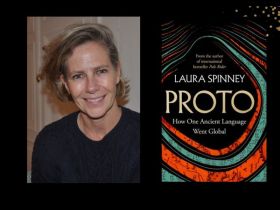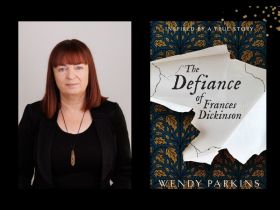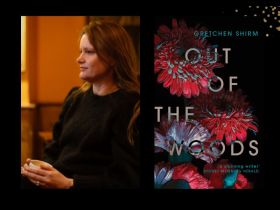When she’s not being a Taekwon-Do instructor, Cass Frances has a side hustle assessing manuscripts. The Australian writer, currently based in France, has a Master of Creative Writing, Publishing and Editing from the University of Melbourne and was a Glenfern fellow. She tells ArtsHub about the nuances of advising writers on their works-in-progress.
How and why did you first get into manuscript assessing?
I did a Master of Creative Writing, Publishing and Editing, and through that I discovered that I really wanted to be on the writing and editing side of the publishing industry. When Writers Victoria put out that they were looking for more manuscript assessors I applied. When I moved to France six years ago I set up a small website for myself as well. I get most of my Australian clients through Writers Victoria and through word of mouth for international clients. Overall though, it is still a part-time income.
What genres do you assess and roughly how long does it take to assess a manuscript?
I mostly assess young adult, fantasy, science fiction and literary fiction. They’re definitely my favourite to read and write. The only things I stay away from are crime and romance (though in real life, who knows!).
My reports are generally between 1000 and 2000 words long for every 10,000 words of the manuscript that I assess.
I like to do mine fairly informally, in my own voice, rather than a cold, anonymous report. Since writing a story is about connecting to readers and I’m the first reader, I try to talk about the book the way I would to a friend over coffee.
What are the joys and challenges of this job?
Sometimes it can feel overwhelming: how am I supposed to sum up an entire manuscript and offer practical advice about what to do?
It’s always really fascinating to see what people are writing, what’s the Zeitgeist so to speak. And try to puzzle out what was the spark that inspired them and to think about what could be possible.
One of the challenges is dealing with people who rush into sending off their work. It should be as good as they could get it on their own before sending it to a manuscript assessor. All early drafts are going to have similar problems: passive protagonists, pacing issues, long dialogue scenes that don’t really go anywhere, an unclear theme. And that may be all I can really tell them. Which is a shame because they could have probably received similar advice from many of the craft writing books that are available.
The more work the writer has already done, the more I can do for them really.
If you were interviewing someone for this job what skills and qualities would you look for?
- Widely read. Being truly well-read is an impossible task of course, but I would expect that they’ve read the cornerstone books in their genre and read outside their genre as well.
- A good understanding about the mechanics of storytelling and scene structure in general. Know why stories work the way they do and can identify where the wheels fall off. And that they pull their storytelling knowledge from a variety of sources. Lately I find myself sharing tips that I’ve learned from watching actors talk about how they develop a character during a scene.
- Compassion and empathy. This is people’s most intimate artwork and it’s a significant investment for them and you are passing judgement on it. I would look for a recognition that everybody and every work has potential, if someone else invests their time and their belief in them. And the writer is asking you first to believe in them.
- An awareness of industry trends and little writing quirks like the Tiffany problem. And the reverse, which I call the ‘OK’ problem (that you shouldn’t have your medieval kings saying ‘OK’ unless it is meant to be a deliberate stylistic choice!
- General editing skills. But good spelling and grammar are actually pretty far down on the list, because, as I say in my assessments, that’s always fixable.
What are some of the misconceptions of manuscript assessing?
That we actually edit the work or tell you exactly what to do. I’ll sometimes do a page of the manuscript to illustrate what I mean, but I don’t mark up the whole manuscript. I look at what is not working, think about why and give the writer resources and ideas on how to find a creative solution that matches the vision for the story. It’s not my story, and there’s a good quote that is always floating around that says if someone tells you that it doesn’t work for them, they’re always right, but if they tell you what you should do about it, they’ll almost inevitably be wrong.
One of the general misconceptions about writing that I think affects the relationship I might have with clients is one that seems to exist outside the writing world and a lot of new writers still seem to believe it: that writing is some sort of mystical talent and that a first draft will be good, and that, if it is not, it’s a sign that you are a terminally bad writer. I blame Hollywood for this because in every movie with a writer they always stay up all night writing, then the next scene is the publisher discussing the marketing plan. If only it was like that!
This is what I tell people: imagine if you went to a personal trainer and said you wanted to be an Olympian, they would test your strength and speed and tell you that you’ll need to get a lot stronger, and do a lot more push-ups and squats. And they can show you how to do squats, but it is up to you to do them; the trainer can’t do them for you. I could imagine that the number of athletes versus the number of Olympians and the number of books written versus the number of books published is probably a similar ratio and it’s the people that do the work that get to the Olympics or get their books published.
Most of us know that we probably couldn’t have the speed or strength to be an Olympian at this moment, but that if we went to the gym and trained for years and years we would definitely get a lot closer to that goal.
And writing isn’t really any different. Every writer has to work on craft skills and each manuscript has to go through a lot of refining and rewriting, and every good book has a horrendously bad first draft locked away in a drawer somewhere!
Read: Guide on submitting a manuscript
What if clients don’t really like the feedback?
Receiving feedback for the first time is awful and that never changes. I saw a tweet from a well-known author a while ago who said she’s just received line edits from her editor, so to excuse her while she’s just going through the five stages of grief. And I think that’s really true. It sucks, being told that your manuscript is not yet that work of perfection that you have to believe it is while you’re writing it. It plain old sucks!
Read: So you want my arts job: Photography Curator
I think the way through this for manuscript assessors is to prepare clients for that feeling when they first get feedback, so that it is not a shock that first time they receive feedback. Good athletes work really hard on their weaknesses and focus on getting stronger, and a good writer means the same, they’ve got to take their manuscript to the gym so to speak and work hard and push through injuries.
For more So You Want My Arts Job articles.





